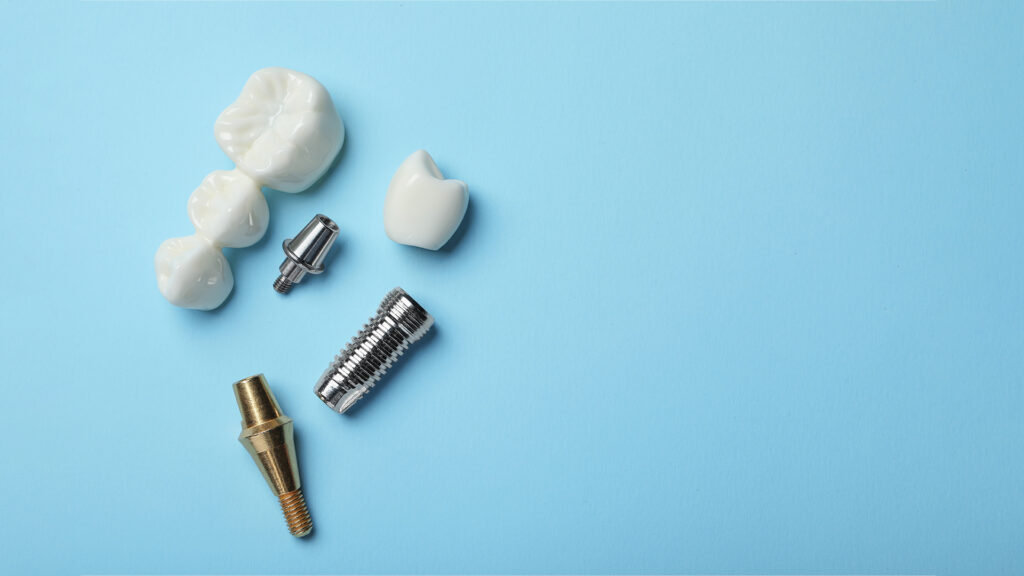Table of Contents
ToggleWhat are the different types of dental implants?
Exploring the Range of Dental Implant Options at Kristal Clinic
Dental implants have revolutionized the field of dentistry, offering a lifelike and long-lasting solution for missing teeth. At Kristal Clinic, we take pride in providing a comprehensive range of dental implant options to cater to the unique needs of our patients. In this article, we’ll explore the various types of dental implants available at Kristal Clinic and help you understand which one might be the right choice for you.
She flaunted a Hollywood smile while in Turkey without breaking the bank!
Having a Hollywood Smile experience in Turkey involves consulting with a cosmetic dentist, who will assess your oral health and discuss your goals. Various t...
Types of Dental Implants
Endosteal Implants: One of the most common types of dental implants offered at Kristal Clinic is the endosteal implant. These implants are surgically placed directly into the jawbone, making them a robust and secure foundation for replacement teeth. Endosteal implants are suitable for patients with healthy jawbones, ensuring stability and longevity.
Subperiosteal Implants: For individuals with insufficient jawbone density to support endosteal implants, subperiosteal implants are an excellent alternative available at Kristal Clinic. These implants are placed beneath the gum but above the jawbone, making them a viable option for those who require dental implants without extensive bone augmentation.
All-on-4 Implants: Kristal Clinic offers All-on-4 implants for patients seeking full arch restorations. This innovative approach involves the placement of four strategically positioned implants to support an entire arch of prosthetic teeth. All-on-4 implants are a time-efficient solution with reduced recovery time, allowing you to regain your smile’s function and aesthetics quickly.
Zygomatic Implants: In cases of severe upper jaw bone loss, zygomatic implants are a specialized choice at Kristal Clinic. These implants anchor to the cheekbone (zygoma), bypassing the compromised jawbone and providing exceptional stability and support for dental restorations.

Exploring a Range of Dental Implant Options at Kristal Clinic
Dental implants have revolutionized the field of dentistry, offering a lifelike and durable solution for missing teeth. At Kristal Clinic, we take pride in our commitment to providing a comprehensive range of dental implant options tailored to meet the unique needs of our patients. In this article, we will delve into the various types of dental implants available at Kristal Clinic and help you make an informed decision regarding the most suitable choice for your specific requirements.
At Kristal Clinic, we appreciate the individuality of every patient and acknowledge the diversity of their dental implant needs. Our devoted team of experts is dedicated to aiding you in choosing the optimal type of dental implant, whether it’s an endosteal implant, subperiosteal implant, All-on-4 implant, or zygomatic implant, to address your specific requirements—whether it be for a single-tooth replacement or a comprehensive smile transformation. Our extensive array of dental implant options at Kristal Clinic ensures that you receive the highest quality treatment precisely tailored to your unique situation.

Materials Used: Dental implants are typically made from biocompatible materials like titanium or zirconia. These materials are chosen for their durability and compatibility with human tissue.
Osseointegration Process: This is the process where the implant integrates with the jawbone. Over time, the bone grows around the implant, securing it in place. This mimics the natural root of a tooth and provides a strong foundation for the artificial tooth.
Mimicking Natural Tooth Roots: Implants are designed to mimic natural tooth roots, not only in strength and stability but also in function. They allow for the distribution of biting forces across the jawbone, which helps maintain bone mass and the structure of the face.
Case Studies and Success Rates:
- Bozena Thomas: Expressed satisfaction with the service and the quality of her new teeth, praising the welcoming and familial treatment at Kristal Clinic.
- Mera Tad: Shared a positive experience, highlighting the organized coordination, thorough explanation of the treatment plan, and the confidence in the doctors’ experience, resulting in a wonderful smile and increased confidence.
Comprehensive Guide for Patients: Before, during, and after the implant procedure, patients can expect comprehensive care and guidance. Initially, a detailed consultation is provided to assess the patient’s needs and plan the treatment. During the procedure, patients are supported by experienced professionals to ensure comfort and optimal outcomes. Post-procedure, patients receive instructions on care and maintenance, including hygiene practices, follow-up visits, and tips on diet to ensure the longevity of the implants. Recovery times vary, but patients are usually advised on how to manage any discomfort and when to resume normal activities.
In conclusion, Kristal Clinic is your destination for a wide array of dental implant options. From endosteal and subperiosteal implants to All-on-4 and zygomatic implants, we offer comprehensive solutions to restore your smile and oral health. If you’re considering dental implants, contact Kristal Clinic today to schedule a consultation and discover which type of dental implant aligns with your unique needs. Your journey towards a confident, functional smile begins here at Kristal Clinic, where we provide various types of dental implants to suit you.
What are the primary types of dental implants?
The primary types include endosteal implants, which are placed in the jawbone; subperiosteal implants, which are placed under the gum but on or above the jawbone; and zygomatic implants, an alternative for those without enough jawbone for traditional implants.
How do All-on-4 dental implants differ from traditional implants?
All-on-4 dental implants support a full arch of teeth with just four implants. This method often eliminates the need for bone grafting and can be an efficient solution for those with low bone density.
Who is a candidate for zygomatic implants?
Zygomatic implants are suitable for patients with significant bone loss in the upper jaw and who are not candidates for traditional implants without extensive bone grafting.
Can anyone get dental implants, or are there restrictions?
Most adults can get dental implants; however, candidates need sufficient bone density, good oral health, and must not have conditions that impair bone healing. Your dentist will evaluate if dental implants are suitable for you.
What is the success rate of dental implants?
The success rate of dental implants varies but is generally high, with studies showing rates above 90% for individual implants over a 10-year period.



